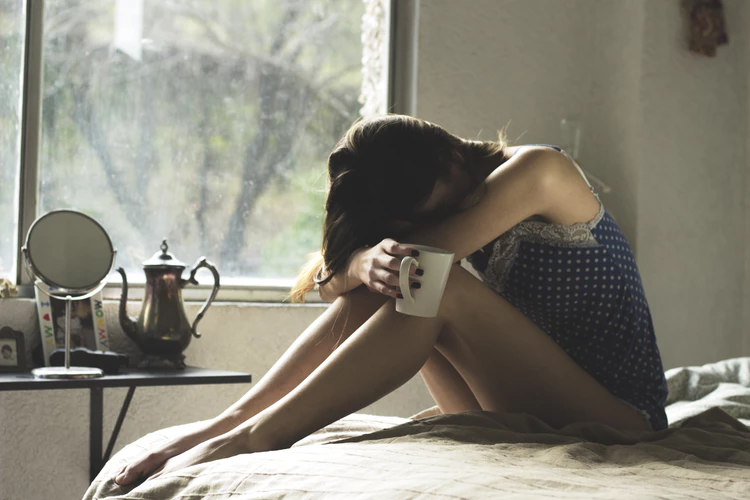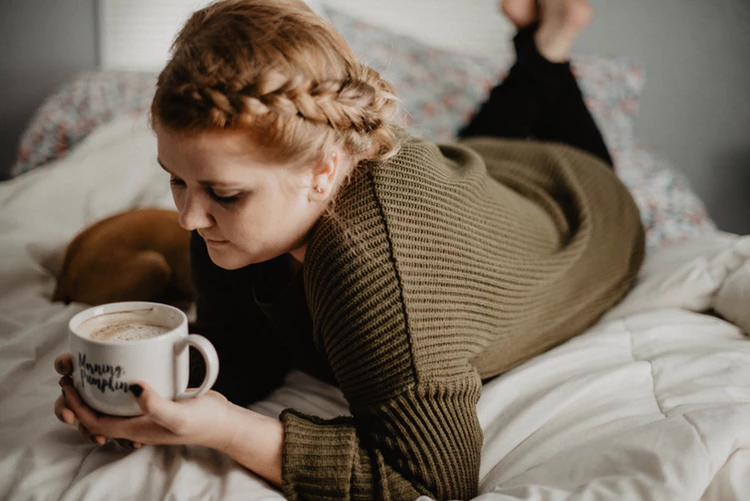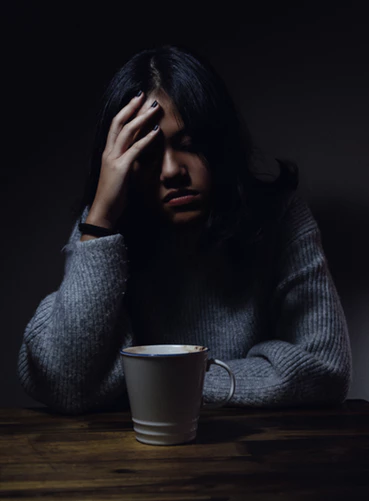
If you can’t imagine starting your day without a latte or a steaming cup of black tea – you’re not alone. It’s estimated that nearly 159 Americans drink tea on a daily basis and 52% of daily coffee drinkers would choose their morning brew over a shower. Caffeine consumption isn’t limited to coffee and tea – it’s also present in energy drinks and soda which fuel people in the morning and throughout the day.
While caffeinated beverages have their benefits, there are also a number of issues that come with caffeine intake. If you’ve experienced nervousness, shakiness, feelings of detachment, or have had a hard time falling asleep at night after enjoying your favorite caffeinated beverage – you may suffer from a sensitivity to caffeine.
Read on to discover a few of the most common signs of sensitivity to caffeine.
You Feel Jittery And Have Muscle Spasms

If you frequently experience shaky hands, eye spasms, restlessness (toe tapping, knee bouncing) and uncontrollable muscle twitching you may have an intolerance for caffeine. Alexea M Gaffney, MD, of Stony Brook Medicine explains, “This can be felt as well as observed as tremors and often accompanies anxiety associated with caffeine intake.”
You get incredibly anxious and stressed

If you often find that you start feeling anxious, overwhelmed and stressed out after your favorite cup of green tea, you may want to cut back. Health coach Maranda Elkin cautions, “Caffeine increases stimulation in the adrenal glands and can amplify stress levels throughout the day…This can elevate one’s perception of stress and cause you to overreact in certain situations.” For example, you may find yourself exploding at the number of notifications popping up on your phone, when you typically have a much calmer response.
You Can Feel Your Heart Pounding In Your Chest

If you’ve ever felt like your heart is beating out of your chest after downing a latte, you’re not being overly dramatic. Gaffney states, “Caffeine sensitive individuals may experience palpitations which presents as racing of the heart or an irregular heartbeat…It can exacerbate abnormal heart rhythms such as atrial fibrillation (A-fib) or tachycardias (abnormally fast heart rhythms). This can be accompanied by a rise in blood pressure, which is also a result of caffeine sensitivity.”
It’s important to visit your doctor if you’ve experienced palpitations after consuming caffeinated beverages. Your doctor may suggest that you cut back or switch to decaf.
You Feel Uneasy

A morning cup of black tea can be comforting, but what happens if you start to feel nervous or uneasy after downing a cup? If you begin to feel detached, agitated, or anxious after drinking caffeinated beverages, what you’re experiencing is derealization. This condition is a serious side effect of excessive caffeine consumption, however if you’re hypersensitive to caffeine you may experience this as well. Cindy Pineo of Livestrong states, “You may be especially vulnerable to caffeine-triggered derealization if you’re sleep deprived [or] prone to anxiety disorders.”
You Feel Hot Or Your Face Feels Flushed

Regardless of the temperature of the caffeinated drink, many people with a sensitivity to caffeine may begin to feel overheated and flushed- some people may even begin to sweat. Ginger Hultin, MS, RDN, CSO, a Seattle-based Registered Dietitian, Nutritionist and Arivale Coach, explains, “Caffeine sensitivity can be caused by the way caffeine affects the brain so this may be one reason this occurs.”
You’re Restless In Bed At Night

Caffeine is great for keeping us alert and bright, but when we’re wide awake hours after our last cup it can create issues. This becomes especially difficult when it intensifies already existing problems like restless leg syndrome. Gaffney says “caffeine can exacerbate restless leg syndrome” and cautions “…the urge to move the legs as well spontaneous jerking leg movements accompanying this syndrome are increased.”
Restless leg syndrome and insomnia can keep you awake, however caffeine consumption can take a toll on your sleeping habits. Hultin says, “People who are sensitive may also notice that they have trouble sleeping because of caffeine, even if it is separated by many hours in the day.”

